
Do you have what you need to make your garden grow?


Garden Center
Store Hours
Mon-Sat:
6:00am - 11:00pm
Sun:
7:00am - 8:00pm
Curbside:
09:00am - 6:00pm
Location
Popular at Your Garden Center
Trending Garden Supplies in May
Trending Live Plants
Garden Project Calculators
;Resize=(703,395.44))
Grass Seed Calculator
When you're ready to seed your lawn, our calculator helps you estimate the amount of grass seed you'll need to get the job done.
;Resize=(703,395.44))
Mulch Calculator
Enter your preferred material, the square footage and mulch depth of the coverage space for accurate results.
;Resize=(703,395.44))
Fencing Calculator
We'll calculate the amount of fencing you should purchase based on your property needs.
Shop Outdoor and Garden Brands
Frequently Asked Questions About Gardening
What's my planting zone?
Check the USDA zone map, as planting zones have changed slightly over the years. Zones with higher numbers can plant earlier in the year. Increase your odds of successful gardening by choosing plants that are meant for your zone.
When can I plant seeds in my garden?
If the soil isn't frozen or cold, consider planting your veggie, flower, or fruit seeds directly into your garden. This is called the "direct sow" method. Plant after the threat of frost is gone for the season, as seedlings and sprouts can't weather those conditions. You can also start your seeds indoors if you'd like. Consult your seed envelope for when and how to sow seeds.
How do I plant flower seeds?
Follow the directions on your seed envelope. It'll tell you when to start them indoors and when to plant them outside. Generally, you'll add several seeds per planting hole, then press them into the soil as directed. Mark where you planted them with a flag, twig, or wooden craft stick so you don't mistake them for weeds later.
Should I harden off my seedlings before planting them outside?
Yes, for best results, if you raised plants indoors from seeds in your own plant nursery, harden them before you transplant them. Hardening is the process of getting them used to the great outdoors. It slows their growth until they're strong and ready to take off during a spring warm front. Hardening also makes your plants more resilient to a sudden cold snap. Read your seed packets or speak to a garden center associate for more info on caring for your tender seedlings.
Can I strengthen my seedlings before planting them outdoors?
Get your sprouts used to storms and breezy spring days with a fan and keep fungus from growing in damp conditions. Set up an oscillating floor fan on low to mimic the wind. Just the gentlest breeze for several hours a day will do the trick. This makes them stronger against wind gusts. If you don't set up a fan, your seedlings may be more sensitive to strong winds. Try to plant between storms.
Should I use peat moss starters or coir starters?
Seed starters, full of nutrients in pots or pellets, work for new and experienced gardeners. You don't have to use these starters if you're planting in soil, but you may want to. Starting seeds in peat pots works best for delicately rooted plants like cucumbers and eggplant, as well as flowers that require an acidic pH. Some people prefer coir starters instead, as they have a neutral pH. Check what type of soil your plants need to help narrow it down, and chat with a garden center associate if you need more info.
Garden Project Ideas
The Home Depot Garden Center at Vero Beach
Set Up For Springtime
On beautiful spring days, tidy the yard before everything blooms in earnest. Remember to measure your garden so you can find fresh mulch near you as soon as it's available. Don't forget to sweep out the gazebo and clean the shed in preparation for spring, too. No matter which plants you need and what outdoor projects you choose to tackle, search for your local plant nursery and find that The Home Depot Garden Center in Vero Beach can help you enjoy your spring activities to the fullest.
Plant Hardiness Zones Explained
The first thing to know when planting spring flowers, vegetables, and other seeds is your planting zone. Every location in the U.S. and its territories is sorted into blocks by climate. Find your zone on the USDA growing zone map and learn when to plant seeds.
For example, you could transplant bell peppers outdoors in mid-March in Zone 10, but not until the end of May in Zone 4. The plants that'll thrive in your area are in your zone — plus all the zones numbered less than that. In other words, a Zone 8 garden can support plants listed as Zones 1–8. The timeframe to direct sow outdoors in your garden is often around a month later than the indoor start date. Always read your seed packet for details. If you start seeds a little later than recommended, it's not ideal, but it will likely even out as time passes.
Gardening in Your Growing Zone
Your climate is excellent for growing year-round if you've got rich soil. Why not think of springtime planting now? With such beautiful weather, you can direct sow many types of seeds. From classics like peppers and cucumbers to spinach and green beans, you have a wide variety of options. Last year's garden might still be growing if there was no reason to put it to bed — especially if it's close to the house or in a greenhouse. In that case, tend it as usual.
Some seeds, like tomatoes, do best when started indoors and aren't recommended as direct sows. Read your seed packets and adjust accordingly for your region. Although the warm temps are excellent for growing, check your soil to make sure it's rich enough and a good match to your plants. Miami limestone and sandy soil will need soil amendments to adjust the texture and pH for a successful garden if you're growing many garden plants. If you go with native plants like persimmons, muscadines, red mulberries, and blueberries, they're already adapted to the soil of southern Florida and will grow just fine.
Plant Seeds Outside With Direct Sow
Planting seeds with the direct sow method, right into the soil, is another option. It doesn't give you as much organized planning in terms of space and reliability as starting indoors. However, if you like to go with the flow, follow the instructions on your seed packet and give it a try.
Prepare to deal with whatever hand nature deals you: Be ready for all your seeds to sprout, none of them to come up, and anything in between. Your seedlings will need to survive rain, wind, and cold snaps, as well as bugs and animals that crave tender greens. But if you're lucky, you'll get strong sprouts that are ready to grow all spring.
Start Seeds Indoors
If you'd like more control over your seedlings' journey or you're eager to get growing, start your seeds indoors in your own seedling garden. In general, you can plant seeds indoors about a month before you can do it outside. Like direct sow, you push the seeds into the soil as directed on the seed packet, but that's where the similarities end.
You're responsible for giving them quality substitutes for rain and sunlight. Keep your seeds cozy with heat mats and grow lights, water them carefully with a mister or watering can, then thin them as they germinate in groups of three. Give them a boost with a gently blowing fan as they lengthen into sprouts if you'd like. Harden them off to get them used to outdoor conditions, then transplant them into your garden when they're big enough.
Transplant Young Plants Into Their New Homes
Carefully take your seedling out of the container. Turn it sideways or upside-down and gently squeeze the plastic to break the seal. If your transplant grew in the garden, dig deeper than you think with your garden trowel and leave plenty of room around the stem. You don't want to damage the roots. Put the plant in the new hole and make sure it's even with the surrounding soil.
Protect Your Garden With Mulch
Finish your planting by following it with compost and mulch. Compost enriches the soil so your garden can grow even better. It may help foster larger and stronger plants that bear more fruit and flowers. Mulch keeps your soil from drying out and controls weeds. Mulch and compost can be DIY creations, but you can also purchase them in-store. The next time you're looking for "mulch near me," stop by the Garden Center to get the right amount.
Greet the Spring
Don't miss a minute of growing season. Plan your garden and landscaping, prepare to fertilize your lawn, and browse The Home Depot nursery to find inspiration on which spring flowers to plant when the weather warms. For those without lawns, consider adding artificial grass, a pellet grill, or an outdoor rug to your patio or balcony. Shop for the fertilizer, soil, and seeds you need in the aisles of your Vero Beach Garden Center, online, or on our mobile app. Let's get growing together.
Nearby Stores
Find Another Store
13361 Us Hwy 1
Sebastian, FL 32958
14.00 mi
Mon-Sat: 6:00am - 11:00pm
Sun: 7:00am - 8:00pm
5880 Okeechobee Rd
Fort Pierce, FL 34947
15.55 mi
Mon-Sat: 6:00am - 11:00pm
Sun: 7:00am - 8:00pm
700 Sw St Lucie W Blvd
Port Saint Lucie, FL 34986
22.52 mi
Mon-Sat: 6:00am - 11:00pm
Sun: 7:00am - 8:00pm
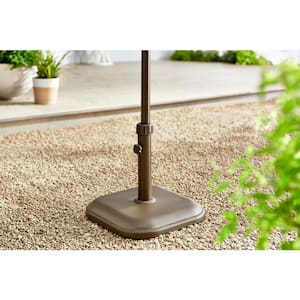
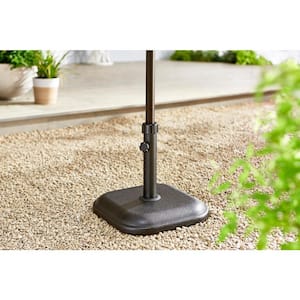
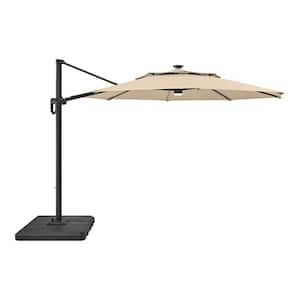
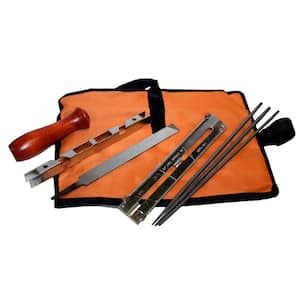
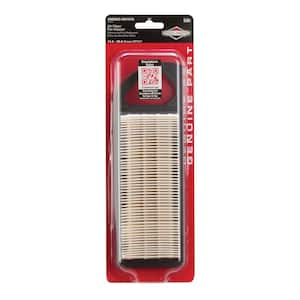
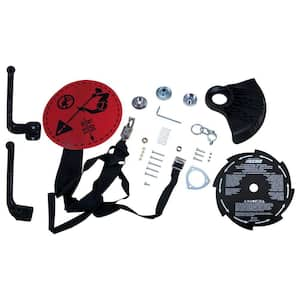
)
)
/17_514245_S_012_Product%20Image%20(square).jpg?im=Resize=(300,300))
;Resize=(300,300))
)
)
)
)
)
/2023_P2_Rain_Barrels_Product%20Image%20(square).jpg?im=Resize=(300,300))
)
;Resize=(300,300))
;Resize=(300,300))
;Resize=(300,300))
/12_SOIL_B_0420_Social%20media%20(square).jpg?im=Resize=(300,300))
;Resize=(300,300))
)
)
;Resize=(300,300))
;Resize=(300,300))
;Resize=(300,300))
;Resize=(300,300))
)
)
;Resize=(300,300))
;Resize=(300,300))
;Resize=(300,300))
;Resize=(300,300))
;Resize=(300,300))
)
/18Patio_Camden_Seagrass_5pcSeating_Planters_302468736_DTL3_L_Social%20media%20(square).jpg?im=Resize=(300,300))
;Resize=(300,300))
;Resize=(300,300))
;Resize=(300,300))
)
;Resize=(300,300))
;Resize=(300,300))
)
;Resize=(300,300))
)
.jpeg?im=Crop,rect=(363.69230769230774,1.2307692307692308,958.7692307692308,958.7692307692308);Resize=(300,300))
;Resize=(300,300))
)
;Resize=(300,300))
;Resize=(300,300))
)
;Resize=(300,300))
)
)
;Resize=(300,300))
;Resize=(300,300))
)
)
;Resize=(300,300))
)
;Resize=(300,300))
;Resize=(300,300))
)
)
;Resize=(300,300))
)
)
/Capello_Spring_Mum_10in_Social%20media%20(square).jpg?im=Resize=(300,300))
;Resize=(300,300))
)
)
;Resize=(300,300))
)
)
;Resize=(300,300))
)
)
;Resize=(300,300))
;Resize=(300,300))











































